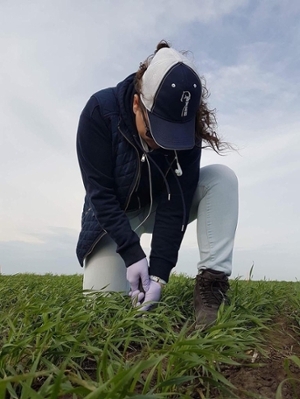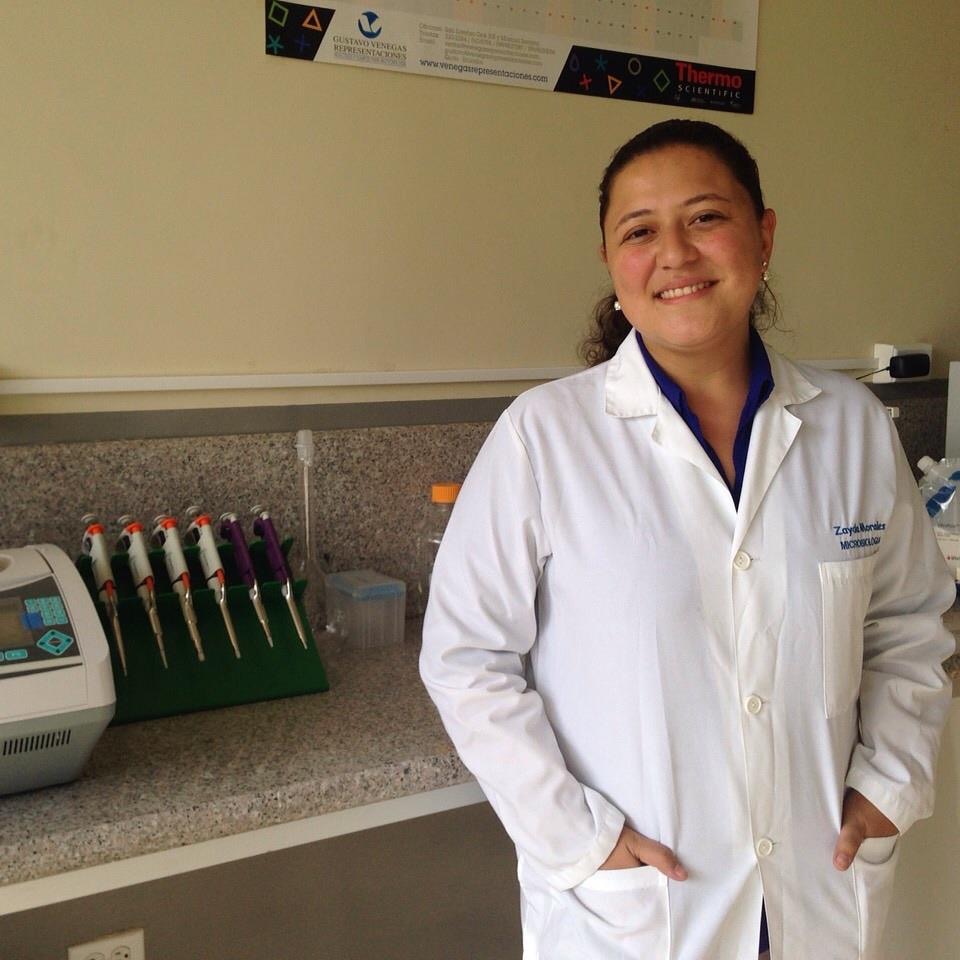
Profile: Zayda Morales Moreira
Microbial Communities, From Soil to Seed
Zayda Morales Moreira, PhD Student in Applied Microbiology (Project 1.3)
P2IRC Research: Seed Microbiome of Agricultural Crops
Can you tell me a bit about yourself?
I am currently a PhD student at the University of Saskatchewan working under the supervision of Dr. Jim Germida and Dr. Bobbi Helgason. I completed my Masters in Agricultural Microbiology in Brazil at Universidade Federal do Recôncavo da Bahia and my Bachelor of Science in Biotechnology in Ecuador at Army Polytechnic School.
Can you provide a brief summary of your research?
Plants have a second genome, or set of genetic material, that belongs to the microbial communities that inhabit the plant’s above and below-ground tissues. These microbial communities (the microbiome) are a group of microorganisms like bacteria, fungi, and viruses that share a common living space. The microorganisms in a particular environment or plant microbiome can be transmitted to future plant generations by seeds, creating a pathway for microbial inheritance. Therefore, plants could be selecting their microbial communities and impacting the health of future plant generations. My research focuses on characterizing these microbial communities that inhabit the seeds and learning about the genetic potential and function of the microbiome.
How did you become interested in your research?
In my undergraduate studies I screened microorganisms as biological control agents; my masters focused on studying endophytic bacteria associated with plants. I have always been interested in the study of plant-microbe interactions.
Why is your project important?
By improving our understanding of seed microbiomes, we may be able to adjust and exploit the various organisms present in the microbiome. This would be done to create diverse breeding lines. By harnessing the potential of the microbiota naturally carried by seeds, we can ensure sustainable ecological practices. This will have implications for crop production and food security. It will also reduce indiscriminate use of pesticides and organic and inorganic inputs in agriculture.
How have you grown or developed as a professional result of your research?
I have become more critical, especially when looking for answers and when challenges appear in the laboratory. Additionally, I have improved my statistical skills.
What is one of the most interesting findings that you’ve had to date?
We’ve determined information related to the bacteria that inhabit the seed surface among different canola, lentil, and wheat lines.
What do you like to do when you aren’t working on research?
I like playing soccer and tennis, as well as playing the guitar. I volunteer with kids in the Let’s Talk Science program.
Research Gate: Zayda Morales Moreira


